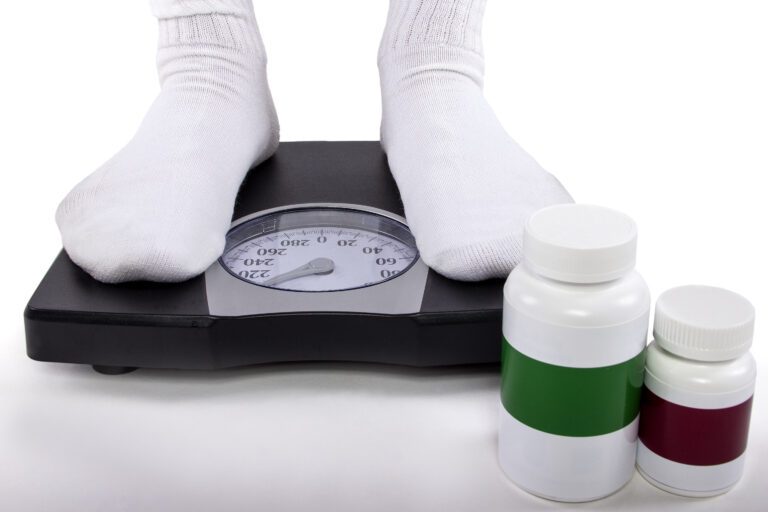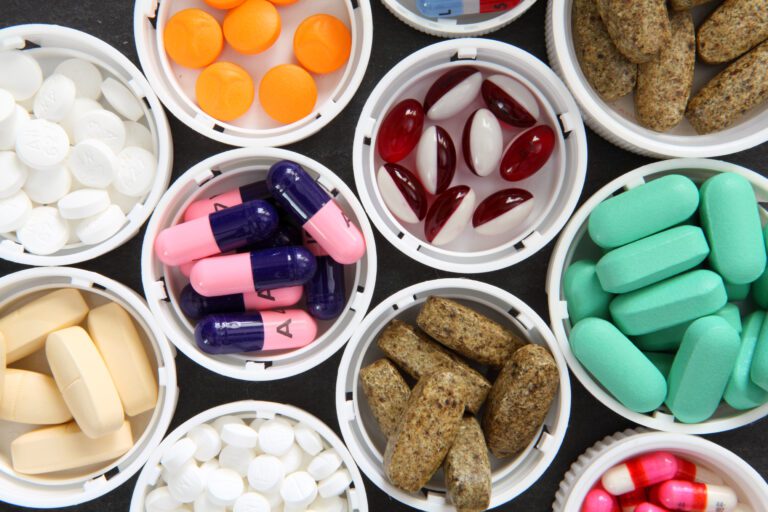How To Manage The Physical Effects of Long-term Medication Use
Medication is a hot topic these days. It is difficult to discuss long-term medication use due to the short time period that many have been out.
As a side note, I am referring to long-term psychotropic medication use when I say long-term medication use in this article.
People are extremely passionate about the use of medication to treat bipolar disorder. Everyone is eager to give their opinion on the efficacy of medication use in the treatment of any psychiatric illness. It is an important discussion to have.
Unfortunately, like many other topics, the discussion of long-term medication use is very polarizing. Most people are either “all in” or “not at all.” If you are looking to successfully manage bipolar disorder, my suggestion is to look at the gray area. I will go into this with more detail by talking about some common questions asked in this debate.
These common questions include:
- Is medication really needed for the treatment of psychiatric disorders?
- Can I just watch my diet and exercise?
- Does medication use really inhibit my creative energy?
Let us start by asking each of these questions and go from there.
Is Medication Necessary for the Management of Psychiatric Disorders?
I wish I could say “no” and be done with it. Unfortunately, that is not the reality of the situation.
I live with bipolar disorder type 1. During one of the first discussions I ever had with my psychiatrist, she emphasized the importance of medication management in my overall treatment plan. She explained the necessity of keeping on my meds and never stopping them without her approval and supervision.
Bipolar disorder is a very serious mental illness. Evidence, including clinical trials and research, indicates the effectiveness of medication in the treatment of bipolar disorder. The medical model incorporates the use of medication management and therapy to treat bipolar disorder and other mental illnesses. Medication is the first line of defense in the treatment of bipolar disorder.
My Experience
In 1999, when I was first diagnosed with bipolar disorder type 1, the immediate goal in my treatment was to get stabilized. Medication helped me reach this goal. My doctor tried me on several medications and various combinations.
I am not saying stabilization is an easy task to accomplish. Along my journey, I have learned that it is easier to accomplish short-term stabilization as compared to long-term stabilization. Different goals require a different set of variables and constraints.
My personal experience has further proved my doctor’s initial recommendation: medication needs to be the foundation of my treatment plan.
Medication is a very touchy subject these days, but do not let the ignorance of a select few deter you from properly treating and managing your bipolar disorder.
Pill-shaming
“Pill-shaming” is a movement that has recently emerged in the current news. I find it interesting how fast people are to dismiss the use of medication in the treatment of mental illness—especially when most of these individuals have no formal medical training, no experience with the medical community, or no personal experience with medication usage!
I cannot tell you the number of times I have heard:
- “Medication is toxic and poisonous.”
- “Big Pharma is only out to make money.”
- “You only need to eat right and exercise.”
People need to realize that the brain of an individual living with bipolar disorder—or any mental illness—is wired differently than that of a neurotypical individual. Just like an organ such as your kidney or liver can get sick, so can your brain.
The human body is constantly trying to maintain a homogenous state. When something gets out of whack, the body reacts and adjusts to get back to this homogenous state. Bipolar disorder is an extremely fluctuating illness that fights against this homogenous state.
It makes sense. The greater the intensity of a manic episode, the greater the deep and dark fall of depression. The mind tries to compensate for the extremely excitable and intense nature of mania by bringing it down several levels. The body overcorrects by trying to bring itself back to an even-keel state and ultimately overcompensates by plunging into a depressive state.
Medication In Layman Terms
The goal of utilizing medication in a treatment plan is to manage bipolar disorder. Medication helps by reducing the ceiling of mania and raising the floor of depression. This is how medication helps balance my mind. By managing the two poles of my disorder, I can experience the so-called normal range of emotions. Thus, it allows me the ability to function.
From my experience, medication management is more of an art form than a science. For so many years, I felt like a guinea pig trying different medications and combinations of medication. It was exhausting – almost like I was an experiment. However, I am grateful that I persisted. I have never been in such a positive place as I am now.
If you have not already, you will hear stories of individuals who are completely med-free and can function just fine. From my experience, they misdiagnosed many of those individuals who do not need medication either, or their symptoms are so “low” on the spectrum of symptom severity that they should never have been diagnosed with bipolar disorder in the first place. It is a sad truth, but bipolar disorder is misdiagnosed and overdiagnosed more than you realize.
Can I Just Watch My Diet and Exercise?
If this were a true statement, professional athletes would never have depression, live with bipolar disorder, or live with other mental illnesses.
Take “The Rock” as a perfect example.
As an actor and as a person, I greatly admire Dwayne “The Rock” Johnson.
I know he works his butt off in every part of his life. Recently, I read he gets up at 4 a.m. to get both his cardio and strength training workouts in before he goes to work and takes care of his other obligations. That is commitment!
You have probably heard in the news that Dwayne opened up about his struggle with depression. I have great respect for someone who can be vulnerable and talk openly about their struggles.
If you only had to exercise and watch what you eat, celebrities and athletes like Dwayne Johnson would never struggle with depression.
As a fitness fanatic myself, I know the positive benefits of exercise and a healthy diet. Exercise is a fantastic coping strategy and component of a treatment plan, but it does not cure bipolar disorder.
Exercise and Healthy Eating in the Treatment of Bipolar Disorder
Healthy eating choices and exercise play essential roles in the management of bipolar disorder, but they do not replace medication. Eating healthy and exercising daily improves my overall quality of life. They are components of my overall treatment plan.
My suggestion is simply to get moving. Research possible workout programs. If you are new to working out, hire a personal trainer to get some one-to-one instruction. Either way, just get more active in your daily life.
Why Does Medication Reduce My Creative Energy?
Those of us living with bipolar disorder are chemically and biologically different from our neurotypical counterparts. Our minds go to different psychological, metaphysical, and spiritual places that a neurotypical individual cannot comprehend.
This ability to see the world through different lenses and realities can cross the line of madness. Just because our minds can stretch this far does not mean it is the only way we can creatively use our minds. For some reason, many of us living with bipolar disorder equate our manic energy with creativity. That is not necessarily the case.
In an episode, the mind is extremely chaotic and moving in 10 different directions. Focus is not something you can expect. With successful treatment utilizing medication, the intensity of manic and depressive episodes decreases, and the time between episodes increases.
Properly medicated, you will be more productive with the help of your greater focus. This will enhance your creativity. I know this firsthand in my endeavors and those of my friends living with bipolar disorder. Creativity is not all random.
Medication does not diminish our creativity. On the contrary, with a clearer mind, we can focus our energy on our creative ventures.
How to Deal with the Physical Effects of Long-term Medication Use
You may be saying, “That’s great, John, but what about the physical effects of long-term medication use?”
Up to this point, I have discussed several hurdles regarding medication use. We must look at these issues. Hopefully, you have a better idea of why there is such a large stigma associated with the discussion of medication.
I hope you question the truth and validity behind any article you read or any statement you hear. With the internet, it is easy to find answers to questions, but it is difficult to find the right answers.
What About The Side Effects Of Long-term Medication Use?
The side effects of medication can be extremely debilitating and uncomfortable. I know this firsthand thanks to 20 years of prescription medication use. There are side effects with any medication. This goes for over-the-counter medication, natural remedies, and supplements.
Many of the physical effects of long-term medication use are unknown because many meds have only been on the market for a short period. There are only a handful of psychotropic medications I know of that have any substantial research associated with their long-term use.
To deal with the physical effects of long-term medication use, I employ several methods. For example, the focus of my treatment plan is not only on stability, but on optimizing both my quality of life and my body.
By improving my body and getting it to the highest functioning level possible, I have a better chance at:
- Fighting off illness
- Coping with stress
- Managing bipolar disorder
- Reducing my anxiety
- Regulating my blood pressure and cholesterol levels
- Improving my sleep hygiene
To Combat Any Negative Impact Of Long-term Medication Use, I Focus On What I Can Control Now
By focusing on what I can control, I empower myself to not only manage bipolar disorder but to give it a big kick in the butt! Working out and eating healthy foods improve my bodily health. This is within my control.
You may also live with some physical limitations. Like many of you, I have other maladies that I manage — trust me; I know from personal experience. It just adds more variables to the equation.
Not only does my medical team consist of my psychiatric nurse practitioner and therapist, but I also have a physical therapist and other specialists. Altogether, they help me to understand the limitations and strengths of my body.
Empowering Myself
I empower myself by employing the following techniques:
1) Exercise daily
2) Make healthy food choices
3) Improve my sleep hygiene
4) Drink plenty of water
5) See my doctors regularly
6) De-stress
7) Follow a daily routine
I looked into the side effects of different remedies. Here is a list of common side effects I found from just one:
- Headache
- Increased kidney stone risk
- Nausea
- Vomiting
- Diarrhea
- Abdominal cramps
- Feeling faint
- Flushing
- Heartburn
- Insomnia
I’m sure you’ve seen the commercials that advertise new medications and those already on the market. The previous list is extremely similar to those side effects you see in medication advertisements.
However, I find something interesting when comparing this list to that on a TV advertisement about medication. The list I gave you shows the side effects of vitamin C. If you look at other supplements, vitamins, and minerals, you will find similar results.
Last Thoughts About Long-term Medication Use
My point with all this is that everything you take has potential side effects. We are all chemically and biologically different. Our uniqueness causes different types and severity of side effects from various remedies. What I experience may not be your personal experience. We can both take the same medication/supplement, but our bodies can react differently.
When it comes to medication management, you need to weigh the pros and cons of your choices. You don’t want to live your life in fear and paranoia. The best thing you can do is make an informed and educated decision.
Do the Benefits Outweigh the Risks?
I do not know the physical effects of long-term medication use, but I do know the long-term physical effects of not taking medication and having this disease. Generally speaking, bipolar disorder will get progressively worse over time, without treatment. Symptoms increase along with intensity. Take this sentiment to heart when you are determining the benefits and risks of a particular treatment.
I know how to manage my bipolar disorder and deal with the effects of long-term medication use. It is all about taking a proactive approach to your treatment. Taking healthy action now will help to prevent the potential adverse future effects of long-term medication use.
Use the techniques I mentioned, such as daily exercise, healthy eating, proper sleep, drinking plenty of water, seeing your doctors regularly, de-stressing, and following a daily routine. There are countless other techniques, but these are my main go-to strategies.
Instead of waiting for an issue to pop up, take the initiative to improve your physical and mental health. This will help to prevent any issues from coming up.
Remember, you have more control than you think. Accept that you have bipolar disorder and manage it to the best of your ability.
Empowering yourself is the next best thing to a cure.






